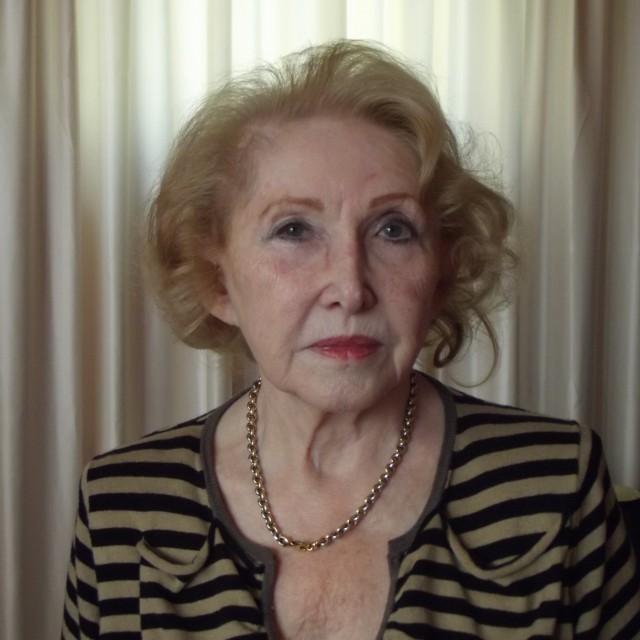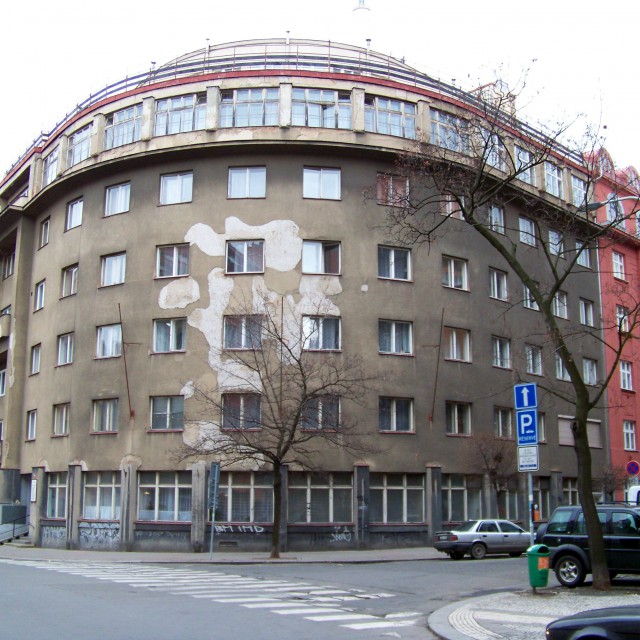The list of threatened persons was sent across the border
The girls' dormitory in Kubelíkova Street in Prague, that was ran by the Congregation of the Sisters of Mercy of the Holy Cross after WWII, became the scene of the third resistance in the years 1948 - 1949. Irena Šimonová - one of the girls living in the dorm - got involved in resistance activities and gathered important documents that she obtained through her friend. "I knew Libuše Kuhnová, who worked as a secretary at the Presidium of the Bar association", says Irena Šimonová."She had the perfect opportunity to get her hands on various documents. So she would bring me some of them and I passed them on to my liaison." Through her friend, František Smrček, who had gone into exile in Germany after the February Communist coup, and had gotten involved in anti-communist activities, she maintained contact to an agent who safely took the documents across the border. Irena Šimonová recalls: "One day, she gave me a list of attorneys in law, who were earmarked for dismissal or arrest. I decided to help them. "Together with Libuše, we wrote them letters warning them of what's coming their way." But ironically, one of the lawyers handed the letter to the police. This aptly illustrates the atmosphere and the level of general mistrust in the early days of the Communist regime. Irena Šimonová at the time tried to cross the border but was arrested. After her friend Libuše was pressured by the StB, it was useless to keep denying the letters. In December 1949, the court sentenced Irena to 25 years in prison. Surprisingly, her contacts with the agents have never been disclosed.
Hodnocení
Abyste mohli hodnotit musíte se přihlásit!
Trasy
Příběh není součastí žádné trasy.
Komentáře

Irena Šimonová
Irena Šimonová, née Vlachová, was born in Ivanov on December 9, 1929. Both of her parents came from wealthy families, their marriage was not happy and they got divorced in 1945. Irena grew up in Vyškov, where she experienced WWII and the subsequent liberation of the city by the Red Army. Due to the unsatisfactory situation in the family after the divorce of her parents, Irena moved to Prague where she - as an underage - was placed under the supervision of her father's friend, a retired lawyer, Dr. Pekuláš. At that time, she studied at the People's University. During her studies, she met František Smrček, with whom she maintained a very strong, albeit on her part only a friendly relationship. After Smrček emigrated to West Germany in 1948, Irena got involved in illegal activities with Smrček's help, trying to help people who were threatened with persecution by the communist regime. In March 1949, she tried to cross the border in the region of Šumava (Bohemian Forest). However, the smuggler abandoned Irena in the woods and the escape failed. On her return journey by train to Prague on March 21, 1949, she was arrested. After harsh interrogations in St. Bartholomew Street in Prague, a secret trial with "Irena Vlachová and companions" took place on Christmas 1949, in which she was sentenced to 25 years in prison. She was placed in a prison in Prague’s Pankrác and in 1951 she was sent to work in a brick factory in Červené Pečky. From there, along with other inmates, she unsuccessfully tried to escape to West Germany. She got caught by the police and was sentenced to another three years on top of her original sentence. She was placed in the Pardubice prison, where her fellow inmates counted "celebrities" like Růžena Vacková, Dagmar Šimková, Jiřina Štěpničková, Julie Hrušková and others. Irena Šimonová was released during an amnesty in 1960. She went to her mother in Carlsbad and lived there until 1968. She married and started a family. During the Prague Spring, she got involved in the establishment of the KAN in Carlsbad. In August 1968, she emigrated with her husband to the Netherlands. Here she founded a successful company doing business in the clothing and fashion industry. Today she alternately lives in Prague and in the Netherlands.



